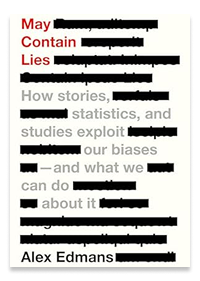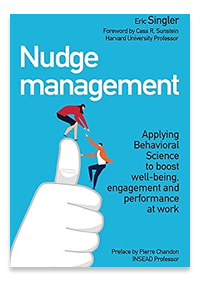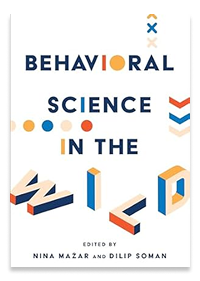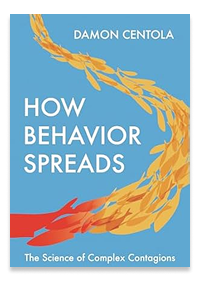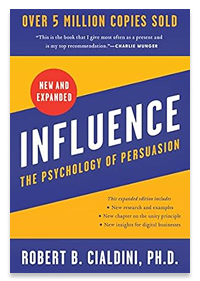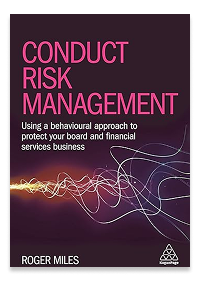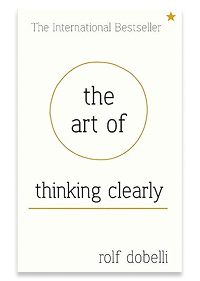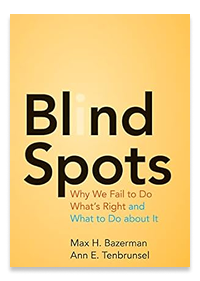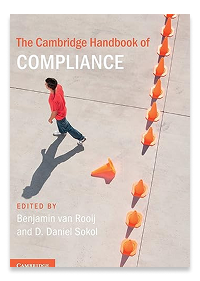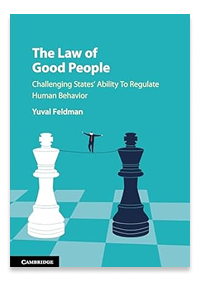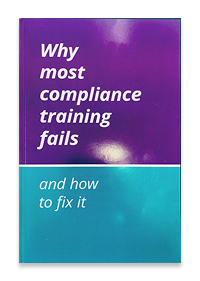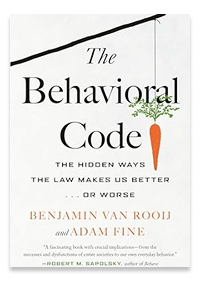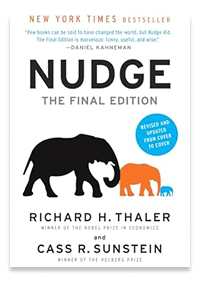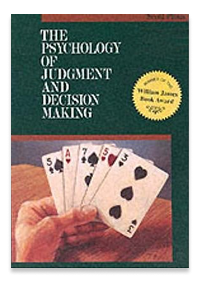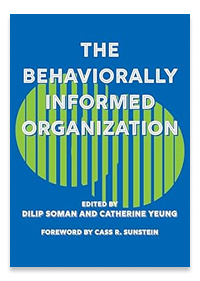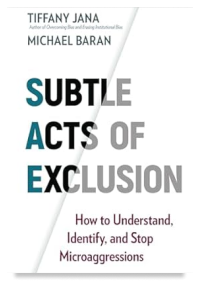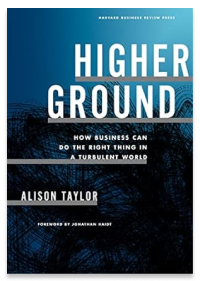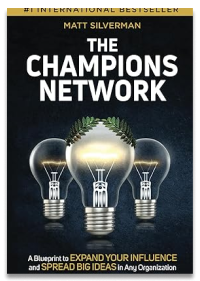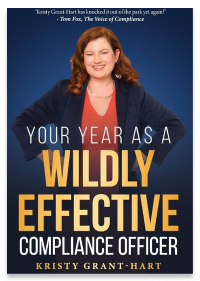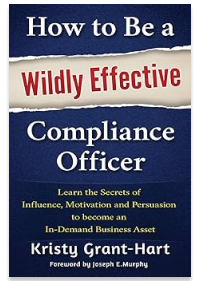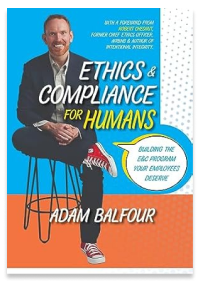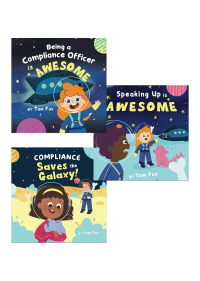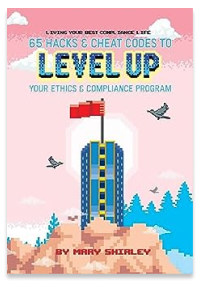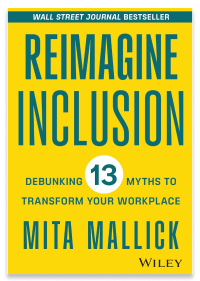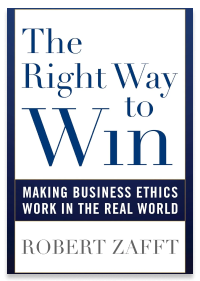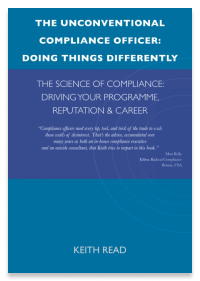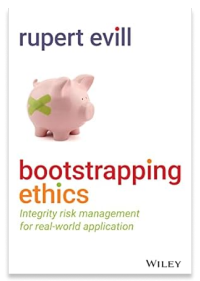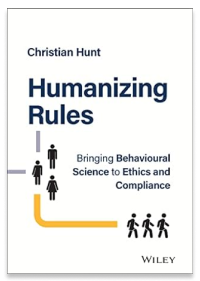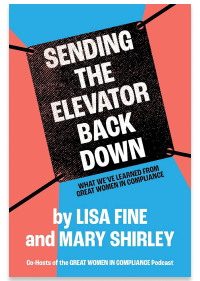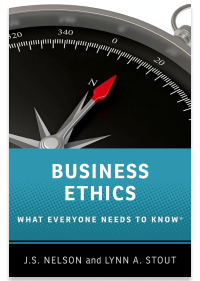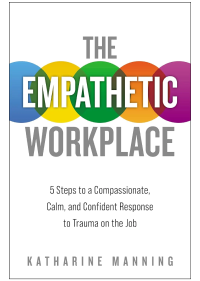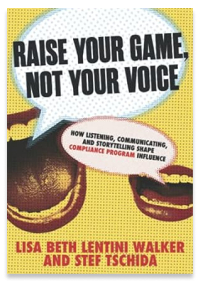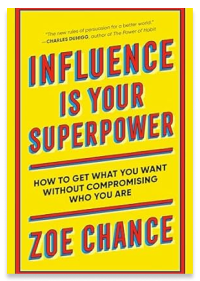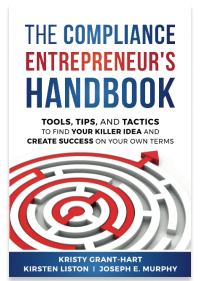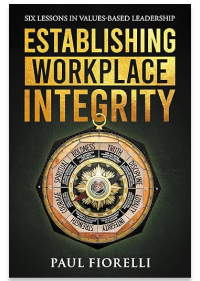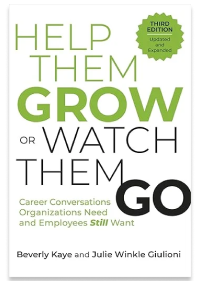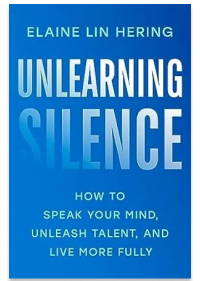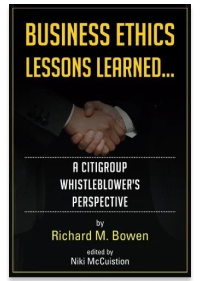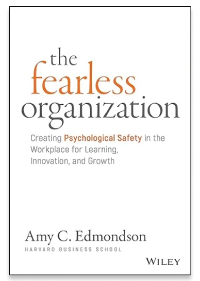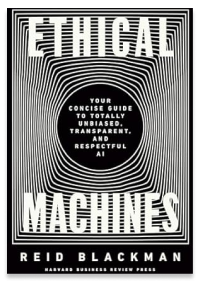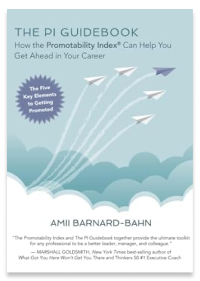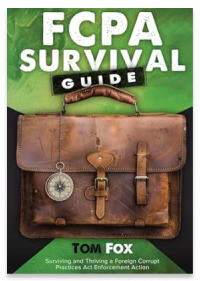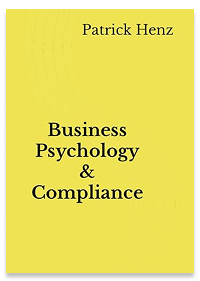The Ethicsverse Library
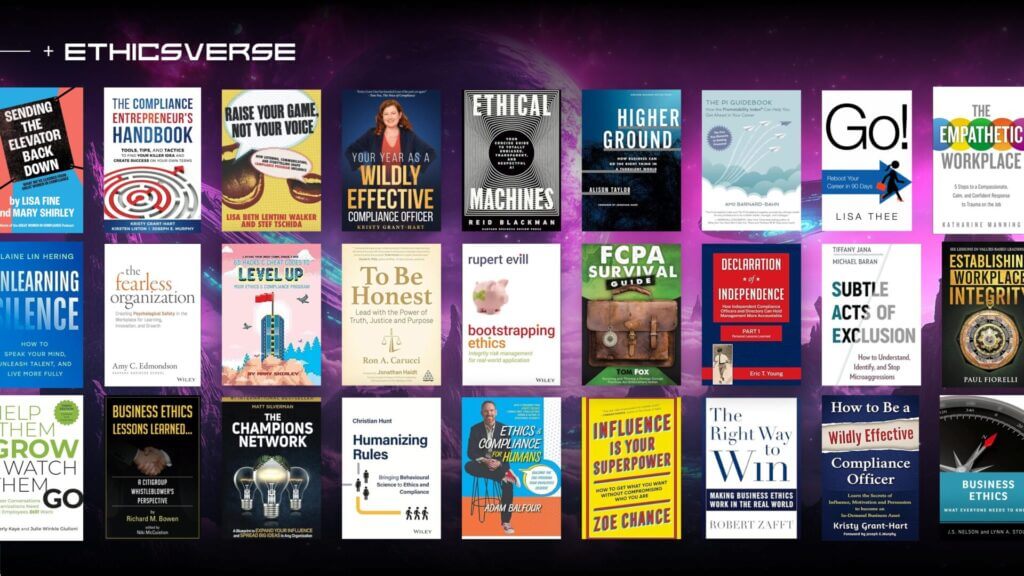

Here at The Ethicsverse, knowledge is our most valuable premium. That’s why we offer an extensive library packed with insights from the best and brightest in the E&C industry and beyond. Participate in the chat every week for a chance to win your own book, or, book a demo and let a sales rep know which book you’d like!
Get a FREE Book
Book A DemoThe Design of Everyday Things: Revised and Expanded Edition
The Design of Everyday Things shows that good, usable design is possible. The rules are simple: make things visible, exploit natural relationships that couple function and control, and make intelligent use of constraints. The goal: guide the user effortlessly to the right action on the right control at the right time. The Design of Everyday Things is a powerful primer on how — and why — some products satisfy customers while others only frustrate them.
May Contain Lies: How Stories, Statistics, and Studies Exploit Our Biases—And What We Can Do about It
Going beyond simply checking the facts and explaining individual statistics, Edmans explores the relationships between statistics—the science of cause and effect—ultimately training us to think smarter, sharper, and more critically. May Contain Lies is an essential read for anyone who wants to make better sense of the world and better decisions.
Nudge management: Applying behavioural science to boost well-being, engagement and performance at work
Drawing on the latest research in Behavioral Science, this book will help you improve your understanding of what really makes us do what we do at work. It will help you make better decisions, and give you the tools to build a physical and psychological environment that will benefit your company. Little Nudges can make big differences.
Behavioral Science in the Wild (Behaviorally Informed Organizations)
Behavioral Science in the Wild helps managers to implement research findings on behavioral change in their own workplace operations and to apply them to business or policy problems. Nina Mažar and Dilip Soman are joined by leading figures from both the academic and applied behavioral sciences to develop a nuanced framework for how managers can best translate results from pilot studies into their own organizations and behavior change challenges using behavioral science.
How Behavior Spreads: The Science of Complex Contagions
Pioneering the use of Web-based methods to understand how changes in people’s social networks alter their behaviors, Centola illustrates the ways in which these insights can be applied to solve countless problems of organizational change, cultural evolution, and social innovation. His findings offer important lessons for public health workers, entrepreneurs, and activists looking to harness networks for social change.
Influence, New and Expanded: The Psychology of Persuasion
Understanding and applying the principles ethically is cost-free and deceptively easy. Backed by Dr. Cialdini’s 35 years of evidence-based, peer-reviewed scientific research—including a three-year field study on what leads people to change—Influence is a comprehensive guide to using these principles to move others in your direction.
Conduct Risk Management: Using a Behavioural Approach to Protect Your Board and Financial Services Business
Conduct Risk Management sees beyond econometric and other ‘box-ticking’ traditions of risk management. Whilst protecting senior managers, it helps all staff to make positive use of conduct risk to promote behaviour the regulator will accept as ‘good’, as good behaviour is good business. The new conduct regulations personally affect every manager in financial services, and their suppliers, with new regulations making senior managers liable to imprisonment for failures in organizational conduct.
The Art of Thinking Clearly: Better Thinking, Better Decisions
Already a huge bestseller in Europe, this is essential reading for anyone with important decisions to make, in the vein of THINKING, FAST AND SLOW and THE DECISION BOOK.
Blind Spots: Why We Fail to Do What’s Right and What to Do about It
Explaining why traditional approaches to ethics don’t work, the book considers how blind spots like ethical fading–the removal of ethics from the decision–making process–have led to tragedies and scandals such as the Challenger space shuttle disaster, steroid use in Major League Baseball, the crash in the financial markets, and the energy crisis. The authors demonstrate how ethical standards shift, how we neglect to notice and act on the unethical behavior of others, and how compliance initiatives can actually promote unethical behavior.
Behavioral Business Ethics (Organization and Management Series)
This book takes a look at how and why individuals display unethical behavior. It emphasizes the actual behavior of individuals rather than the specific business practices. It draws from work on psychology which is the scientific study of human behavior and thought processes. As Max Bazerman said, “efforts to improve ethical decision making are better aimed at understanding our psychological tendencies.”
The Cambridge Handbook of Compliance (Cambridge Law Handbooks)
This handbook bridges these divides to provide the first one-stop overview of what compliance is, how we can best study it, and the core mechanisms that shape it. Written by leading experts, chapters offer perspectives from across law, regulatory studies, management science, criminology, economics, sociology, and psychology. This volume is the definitive and comprehensive account of compliance.
The Law of Good People: Challenging States’ Ability to Regulate Human Behavior
In this illuminating book, Yuval Feldman analyzes these paradigms and provides a broad theoretical and empirical comparison of traditional and non-traditional enforcement mechanisms to advance our understanding of how states can better deal with misdeeds committed by normative citizens blinded by cognitive biases regarding their own ethicality. By bridging the gap between new findings of behavioral ethics and traditional methods used to modify behavior, Feldman proposes a ‘law of good people’ that should be read by scholars and policymakers around the world.
Why most compliance training fails—and how to fix it
One of the best practical compliance books out there. It explains in simple terms why behavior is what matters in compliance and how to change behavior in cost-effective ways.
The Behavioral Code: The Hidden Ways the Law Makes Us Better… or Worse
The Behavioral Code offers a necessary and different approach to battling crime and injustice that is based in understanding the science of human misconduct—rather than relying on our instinctual drive to punish as a way to shape behavior. The book reveals the behavioral code’s hidden role through illustrative examples
Nudge
Since the original publication of Nudge more than a decade ago, the word “nudge” has entered the vocabulary of businesspeople, policymakers, engaged citizens, and consumers everywhere. The book has given rise to more than 200 “nudge units” in governments around the world and countless groups of behavioral scientists in every part of the economy. It has taught us how to use thoughtful “choice architecture”—a concept the authors invented—to help us make better decisions for ourselves, our families, and our society.
Fully Compliant: Compliance Training to Change Behavior
By: Travis Waugh 

In Fully Compliant, Travis Waugh challenges traditional compliance training that focuses only on the legal risk of failing to comply with a specific mandate. With an ever-increasing number of compliance subjects to address, such programs are unsustainable. Instead, organizations must design compliance programs that serve a higher, broader purpose and build robust, resilient cultures focusing on integrity and ethics learning. Optimal compliance programs are flexible and create real learning experiences that change real behavior, thus diminishing the chance of misconduct in the first place.
The Psychology of Judgment and Decision Making
Americans are faced with a bewildering array of choices. In this lively introduction to psychological research on how people make decisions, Scott Plous focuses on the social aspects of decision making and includes everyday examples from medicine, law, business, education, and nuclear arms control, among other areas. Intended for nonspecialists, this book highlights experimental findings rather than psychological theory and presents information in descriptive prose rather than through mathematics.
Judgment in Managerial Decision Making
Embedded with the latest research and theories, Managerial Decision Making 8th Edition gives students the opportunity to understand their own decision-making tendencies, learn strategies for overcoming cognitive biases, and become better decision makers.
The Last Mile: Creating Social and Economic Value from Behavioral Insights
By: Dilip Soman 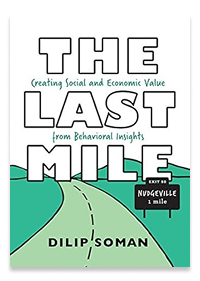

The Last Mile helps lay readers not only to understand behavioral science, but to apply its lessons to their own organizations’ last mile problems, whether they work in business, government, or the nonprofit sector. Appealing to anyone who was fascinated by Dan Ariely’s Predictably Irrational, Richard Thaler and Cass Sunstein’s Nudge, or Daniel Kahneman’s Thinking, Fast and Slow but was not sure how those insights could be practically applied, The Last Mile is full of solid, concrete advice on how to put the lessons of behavioral science to work.
Thinking, Fast and Slow
By: Daniel Kahneman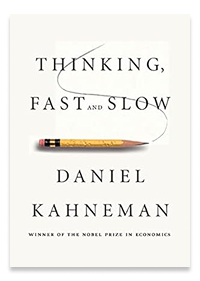

In his mega bestseller, Thinking, Fast and Slow, Daniel Kahneman, world-famous psychologist and winner of the Nobel Prize in Economics, takes us on a groundbreaking tour of the mind and explains the two systems that drive the way we think.
The Liars of Nature and the Nature of Liars: Cheating and Deception in the Living World
By: Lixing Sun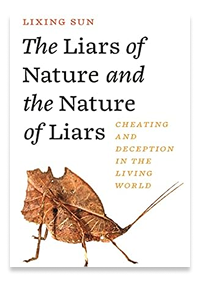

Brimming with insight and humor, The Liars of Nature and the Nature of Liars also looks at the prevalence of cheating in human society, identifying the kinds of cheating that spur innovation and cultural vitality and laying down a blueprint for combatting malicious cheating such as fake news and disinformation.
Behavioral Ethics in Practice: Why We Sometimes Make the Wrong Decisions
By: Cara Biasucci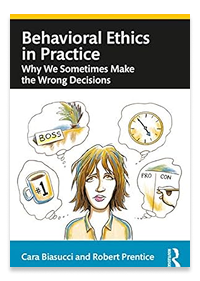

This book is an accessible, research-based introduction to behavioral ethics. Often ethics education is incomplete because it ignores how and why people make moral decisions. But using exciting new research from fields such as behavioural psychology, cognitive science, and evolutionary biology, the study of behavioural ethics uncovers the common reasons why good people often screw up.
Optimally Irrational: The Good Reasons We Behave the Way We Do
By: Lionel Page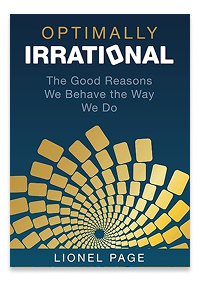

Page delivers an ambitious overview of the literature in behavioural economics and, through the exposition of these flaws and their meaning, presents a sort of unified theory of behaviouralism, cognitive psychology and evolutionary biology. He gathers theoretical and empirical evidence about the causes of behavioural ‘biases’ and proposes a big picture of what the discipline means for economics.
Complicit: How We Enable The Unethical and How to Stop
By: Max H. Bazerman

Complicit tells compelling stories of those who enabled the Theranos and WeWork scandals, the opioid crisis, the sexual abuse that led to the #MeToo movement, and the January 6th U.S. Capitol attack. The book describes seven different behavioral profiles that can lead to complicity in wrongdoing, ranging from true partners to those who unknowingly benefit from systemic privilege, including white privilege, and it tells the story of Bazerman’s own brushes with complicity.
Why good people sometimes do bad things: 52 reflections on ethics at work
By: Muel Kaptein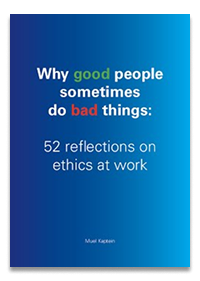

Why do honest and decent employees sometimes overstep the mark? What makes managers with integrity go off the rails? What causes well-meaning organizations to deceive their clients, employees and shareholders? Social psychology offers surprising answers to these intriguing and timely questions.
What Works, What Doesn’t (and When): Case Studies in Applied Behavioral Science (Behaviorally Informed Organizations)
How well do behavioral science interventions translate and scale in the real world? Consider a practitioner who is looking to create behavior change through an intervention – perhaps it involves getting people to conserve energy, increase compliance with a medication regime, reduce misinformation, or improve tax collection. The behavioral science practitioner will typically draw inspiration from a previous study or intervention to translate into their own intervention.
The Behaviorally Informed Organization (Behaviorally Informed Organizations)
Every organization is fundamentally in the business of behavior change, whether it be a government trying to get a business to comply with environmental regulations, a business persuading its customers to be loyal to its products, or a financial institution encouraging a client to start saving for retirement. Behavior change is critical to organizational success, but despite its centrality to organizations, we do not have a good understanding of how organizations can successfully employ insights from behavioral science in their operations. To address this gap, this book develops an overarching framework for using behavioral science. It shows how behavioral insights (BI) can be embedded in organizations to achieve better outcomes, improve the efficiency of processes, and maximize stakeholder engagement.
Go! Reboot Your Career in 90 Days
By: Lisa Thee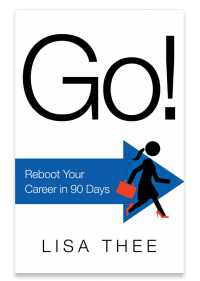

Go! shows you how to listen to your gut and make a thoughtful and savvy plan toward a truly fulfilling career. Equal parts validation, empowerment, and guide, Go! provides powerful examples of career transformation from a wide array of leaders and outlines a versatile 90-day career reboot plan.
Subtle Acts of Exclusion
By:
An expanded edition of the first practical, nonjudgmental handbook for dealing with microaggressions, featuring examples, sample scripts, action plans, a new discussion and activity guide, and up-to-date suggestions for creating a culture of belonging in the workplace.
Higher Ground: How Business Can Do the Right Thing in a Turbulent World
By: Alison Taylor
In this eye-opening, essential book, NYU Stern ethics professor Alison Taylor argues that amid stakeholder demands and transparency pressures, we can no longer treat ethics as merely a legal and reputational defense mechanism.
The Champions Network: A Blueprint to Expand Your Influence and Spread Big Ideas in Any Organization
By: Matt Silverman
We all have BIG IDEAS: best practices, transformative programs, innovative initiatives, and ways to improve our company culture and productivity. If you could influence others to adopt these, would it make your job easier and help to accomplish your professional goals?
Your Year as a Wildly Effective Compliance Officer
Get ready to embark on the best year of your career yet! Your Year as a Wildly Effective Compliance Officer is your ticket to success. It’s full of tips, tools, hacks, and tactics to transform you into an in-demand business asset.
How to Be a Wildly Effective Compliance Officer
This book is a powerful guide to help practitioners move from the check-the-box mentality of a paper program to become a dynamic business leader.
Ethics and Compliance for Humans
By: Adam Balfour
In Ethics and Compliance for Humans, corporate compliance expert Adam Balfour articulates why ethics and compliance departments, HR and business leaders must keep people top of mind when designing and implementing ethics and compliance programs.
The Compliance Kids Trilogy
By: Tom Fox
Embark on an out-of-this-world adventure with the exciting “Compliance Kids” book series! Join the crew of the FoxNebula as they travel the universe, rescuing alien dogs in need and finding them loving homes.
Living Your Best Compliance Life: 65 Hacks and Cheat Codes to Level Up Your Compliance Program
By: Mary Shirley
Whether you’re a Chief Compliance Officer, team lead or individual contributor, this book is packed with forward-thinking hacks and ideas to improve the effectiveness of your Ethics and Compliance program to build a stronger, winning function, honoring psychological safety.
Reimagine Inclusion: Debunking 13 Myths To Transform Your Workplace
By: Mita Mallick
In Reimagine Inclusion, veteran DEI leader Mita Mallick debunks 13 myths that hold us back from transforming our workplaces. She delivers powerful storytelling combined with practical and hands on ways for us to be more inclusive leaders.
The Right Way to Win: Making Business Ethics Work in the Real World
By: Robert Zafft
The Right Way to Win shows you how to do well while doing good. It gives readers the tools and techniques for fixing and enforcing ethical behavior. These same methods drive long-term business success.
The Unconventional Compliance Officer
By: Keith Read
This book is not intended as an introduction to compliance – a Compliance 101 – but it does give unconventional, new and novel ideas, approaches and strategies right across the compliance officer’s spectrum, including some intended to address or mitigate what are, arguably, the most intransigent and universal issues.
Bootstrapping Ethics: Integrity Risk Management for Real-World Application
By: Rupert Evill
Accomplished fraud investigator and risk advisor Rupert Evill delivers a smart, simple, and hands-on guide to managing risk and ethics in your organization. You’ll learn to protect yourself, your organization, and your stakeholders from regulatory and other risks with frontline-tested strategies and frameworks designed to achieve both quick wins and long-term risk mitigation.
Humanizing Rules: Bringing Behavioural Science to Ethics and Compliance
By: Christian Hunt
Veteran risk adviser and trainer Christian Hunt delivers an incisive and practical discussion of how to mitigate the risk of people doing things they shouldn’t or failing to do things they should. In the book, you’ll explore effective strategies for achieving compliance that work with – rather than against – the grain of natural human thinking and behavior.
Sending the Elevator Back Down
By: Lisa Fine & Mary Shirley
Lisa Fine and Mary Shirley share wit and wisdom from some of the greatest minds in compliance, women who hail from every corner of the globe and span myriad industries and experience levels.
Business Ethics: What Everyone Needs to Know
By: J.S. Nelson & Lynn A. Stout
An authoritative and practical guide to business ethics written in an accessible question and answer format.
The Empathetic Workplace
This critical resource gives managers, HR, and anyone who may come into contact with someone in trauma—including workplace violence, harassment, assault, illness, addiction, fraud, bankruptcy, and more—the tools they need to be prepared for what lies ahead.
Raise Your Game, Not Your Voice
By: Lisa Beth Lentini Walker & Stef Tschida
This guidebook for compliance professionals explores the importance of tailoring your message to your audience and shares practical advice from the authors’ own experiences.
Influence Is Your Superpower
By: Zoe Chance
The science of winning hearts, sparking change, and making good things happen. Rediscover the superpower that makes good things happen, from the professor behind Yale School of Management’s most popular class.
The Compliance Entrepreneur’s Handbook
By: Kristy Grant-Hart, Kirsten Liston, & Joseph E. Murphy
Tools, tips, and tactics to find your killer idea and create success on your own.
Establishing Workplace Integrity
By: Paul Fiorelli
Companies like Theranos, Enron, and the Bernie L. Madoff Investment Securities Company (BLMIS) crashed and burned when their founder’s used fraud, deceit, and corruption for short term goals and stock price spikes. Readers will explore the pitfalls of bad ethical practices and learn how to be Values-based Leaders.
Help Them Grow or Watch Them Go
By: Beverly Kaye & Julie Winkle Giulioni
This new edition of the bestselling employee development classic includes advice on engagement and retention in today’s more flexible employment environment, a new chapter on remote and hybrid work, and a deeper discussion of career development in your organization.
Unlearning Silence
A paradigm-shifting book looking at the pervasive influence of silence and how we can begin to dismantle it in order to find our voices at home and at work.
Business Ethics Lessons Learned…
By: Richard M Bowen
The 2008 financial crisis, the worst in our history and the egregious fraud, greed and corruption which led to it, impacted not just the banking world but businesses and individuals worldwide. And, it could well have easily been prevented if best business practices had been followed…
The Fearless Organization
By: Amy C. Edmondson
This book explores this culture of psychological safety, and provides a blueprint for bringing it to life. The road is sometimes bumpy, but succinct and informative scenario-based explanations provide a clear path forward to constant learning and healthy innovation.
Ethical Machines
By: Reid Blackman
The promise of artificial intelligence is automated decision-making at scale, but that means AI also automates risk at scale. Are you prepared for that risk?
The PI Guidebook
No matter where you are on your career path… If you’re ready to spread your wings and finally climb that corporate ladder, the PI Guidebook is designed to help you move forward.
FCPA Survival Guide
By: Tom Fox
The U.S. Department of Justice has clearly and consistently communicated its expectations for any company which finds itself facing an enforcement action under the Foreign Corrupt Practices Act. The book is designed for the compliance professional and business executive who finds themselves in an investigation. It details the steps needed for obtaining the most favorable resolutions possible. It lays out, in the DOJ’s own words, what a company can do and the actions they can take to reduce any fine and penalty.
Business Psychology & Compliance
By: Patrick Henz
Internal policies are based on external laws. However, simply explaining these requirements is often not enough, since “good employees” can also do bad deeds despite better knowledge. With the appropriate knowledge, employees can be strengthened and thus protect them against these effects and temptations. The book presents the various psychological biases and how the company can minimize them and prepare their employees in the best possible way.
Powerful Phrases for Dealing with Workplace Conflict
By: Karin Hurt & David Dye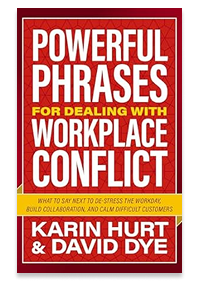

Internal policies are based on external laws. However, simply explaining these requirements is often not enough, since “good employees” can also do bad deeds despite better knowledge. With the appropriate knowledge, employees can be strengthened and thus protect them against these effects and temptations. The book presents the various psychological biases and how the company can minimize them and prepare their employees in the best possible way.

































